#Asian-American Filmmakers
Text
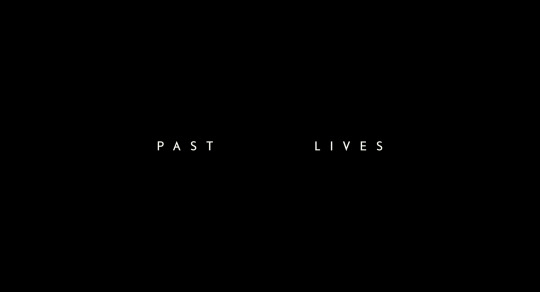

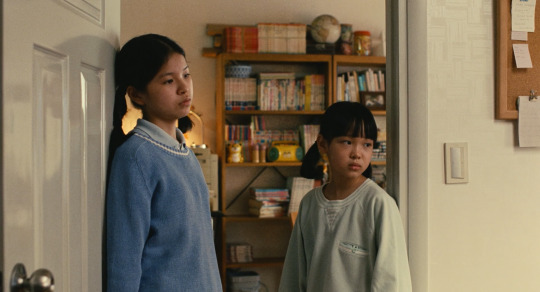

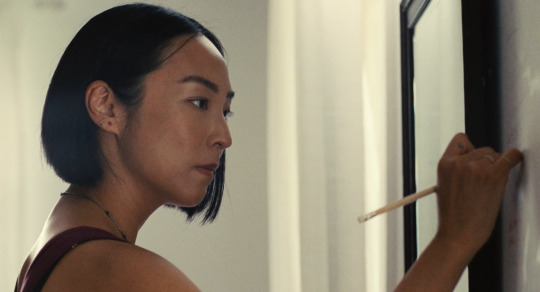
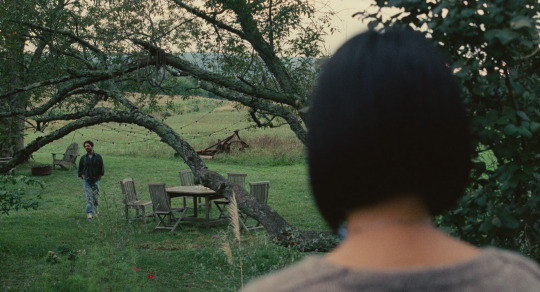

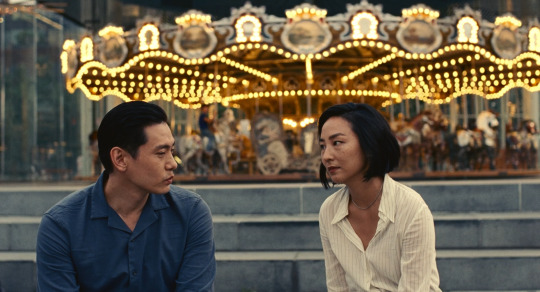
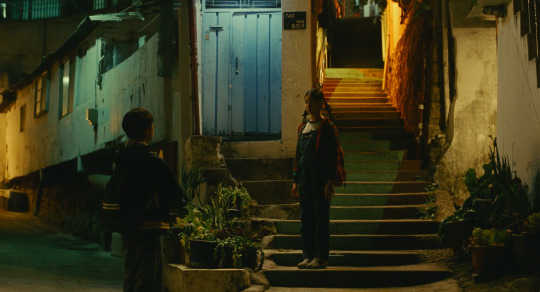

Past Lives (Celine Song, 2023)
#greta lee#teo yoo#past lives#celine song#a24#female filmmakers#female directors#women in film#female screenwriters#female directed films#korean american#korean#asian american#south korea
597 notes
·
View notes
Text


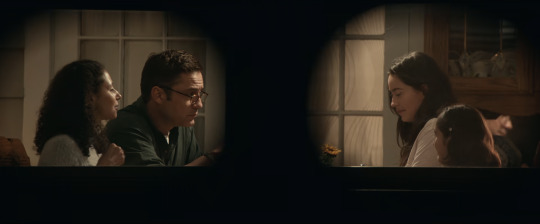



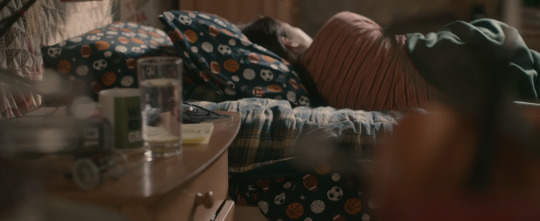

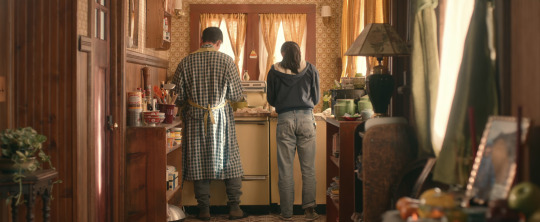

The Half of It (2020)
Director: Alice Wu
Cinematographer: Greta Zozula
#fuckyeahwomenfilmdirectors#the half of it#alice wu#leah lewis#female filmmakers#female film directors#women directors#asian american filmmakers
125 notes
·
View notes
Text

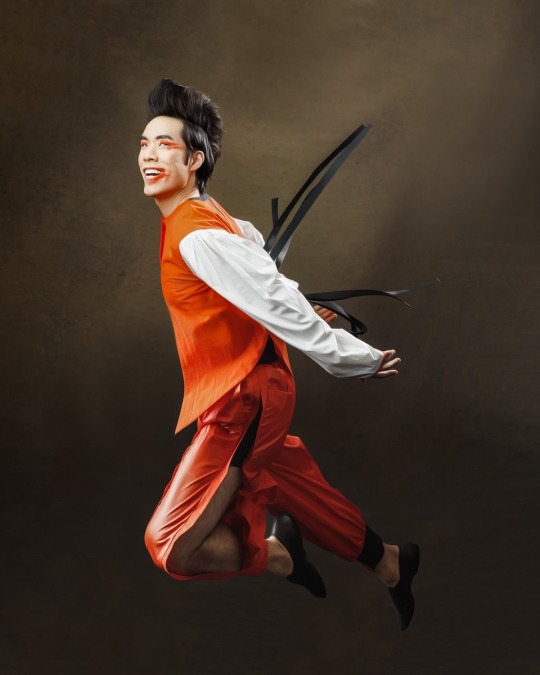
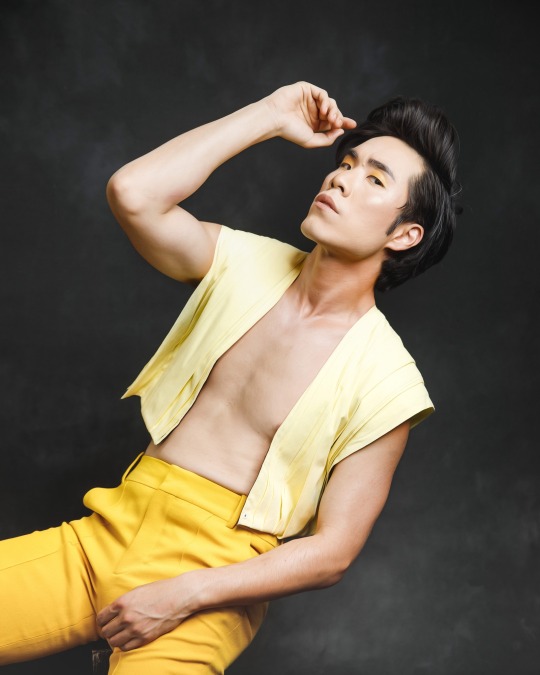
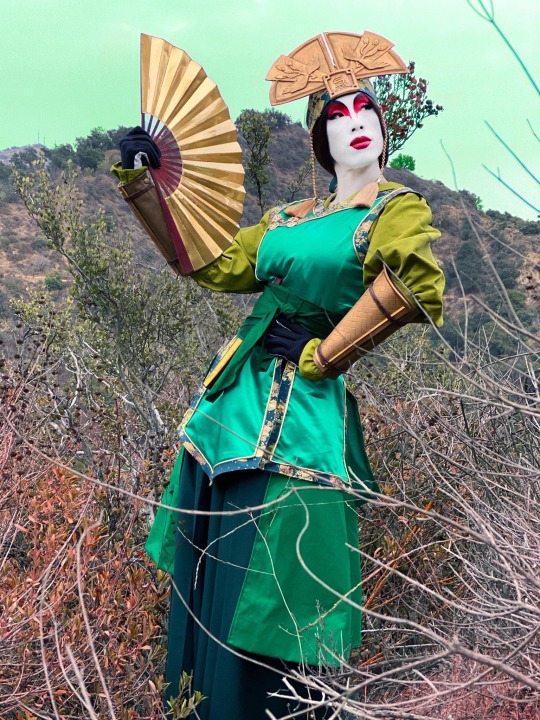


HAPPY 38TH BIRTHDAY, EUGENE LEE YANG!!!
#happy birthday#brown eyes#happy birthday 2024#january 18#january 2024#asian american#eugene lee yang#lgbtq#try guys#capricorn#brooklyn nine nine#filmmaker#author#nimona
100 notes
·
View notes
Text

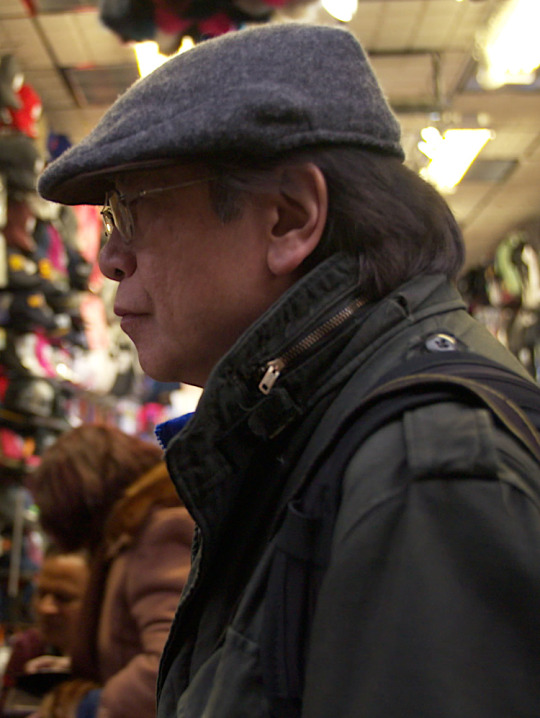

hello from 06242023 - I finally have the chance to reflect on day two of the Asian American Film Showcase 2023, which focused on ‘generations’ through a series of short films. I will put the full program down below and any related links I can find, but I want to take a moment to highlight three that have stuck with me :
Nǎi Nai & Wài Pó (2022, dir. Sean Wang) - The short film tells the story of the filmmaker’s grandmothers, in-laws that have such an affinity for life. They’re a joy to watch, a goddamn delight. The format in which Sean Wang chose to capture the daily lives of these women suit their quirks and tenacity. I laughed, I cried, I hope to be like them someday.
Dear Corky (2022, dir. Curtis Chin) - Chin informs you at the top of the short film that the intentions of the project started off a little differently, but due to the untimely death of renown photographer and star of the film, Corky Lee, the end result became a phenomenal tribute to Corky and the stories he brought to light. Just when I thought I was going to part with the film with my heart heavy, Chin reached out and pulled me back up. I felt hopeful and inspired by knowing Corky in that small window of time we had.
Lunchbox (2022, dir. Anne Hu) - You know you have the audience in the palm of your hand when you hear the chorus of sniffles during the end credits of this short film. Hu perfectly unravels the story behind each recipe the main character is preparing for her daughter in the present, while recalling her upbringing and turmoil with her own mother. This film reached into the personal corner of my heart and pulled it out of my chest, still beating, exposed to the world. I wish Anne Hu the very best and hope this healed something in her as it did for me.

Missile (2022, dir. Christopher Hwisu Kim)
Nǎi Nai & Wài Pó (2022, dir. Sean Wang)
In Living Memory (2022, dir. Quyên Nguyen-Le)
The Return (2021, dir. Hena Asraf)
Dear Corky (2022, dir. Curtis Chin)
Lunchbox (2022, dir. Anne Hu)
Closing Dynasty (2022, dir. Lloyd Lee Choi)
#short films#short subject#film festival#filmmaking#aapi#asian american#generational trauma#filmtvdaily#cinematv#from the diaries
14 notes
·
View notes
Photo
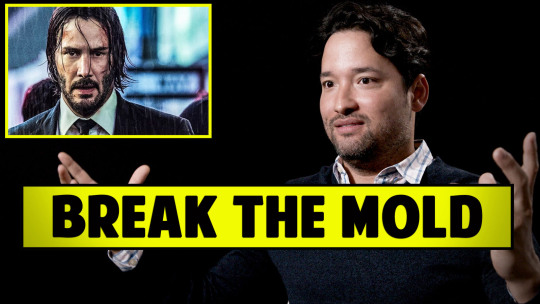
One Day Asian Americans Playing Normal Roles In Movies Will Be A Regular Thing - Jason Park via FilmCourage.com.
#actors#film#asian american#media#movies#acting#cinema#actors on tumblr#artists on tumblr#filmmakers on tumblr#film and tv#AANHPI#AAPI#television
3 notes
·
View notes
Text
Exclusive Interview: filmmaker Andrew Ahn "celebrates queer joy & chosen family" with Fire Island
Exclusive Interview: filmmaker Andrew Ahn “celebrates queer joy & chosen family” with Fire Island
When stand-up comedian, writer, and actor Joel Kim Booster had the genius idea to rework Jane Austen’s Pride and Prejudice as a modern-day rom-com set on Fire Island centering queer Asian American characters, he turned to Andrew Ahn to direct his screenplay. The queer Korean American filmmaker caught the attention of critics and the entertainment industry at large in 2016 when his beautifully…

View On WordPress
#Andrew Ahn#andrew ahn fire island#andrew ahn fire island interview#andrew ahn interview#asian american director#asian american filmmaker#Bowen Yang Fire Island#Conrad ricamora fire island#Filmmaker Interview#fire island#fire island film#fire island film interview#fire island film review#fire island hulu#fire island interview#fire island movie#fire island movie interview#fire island new york#fire island pines#fire island pride and prejudice#fire island review#fire island rom-com#gay#gay cinema#gay film#gay movie#gay rom com-gay rom-com#Hulu#hulu fire island#James Kleinmann
1 note
·
View note
Text
not saying anything new but it bugs the shit out of me as a researcher when an article talks about "asian filmmakers in hollywood" and then the filmmakers in question are (almost always) exclusively east asian. like......asia is more than east asia. do americans know that? like it's a 3rd of the world's regions, including the "middle east." i really think the term "asian" is just unhelpful on every level other than as a label for a continent, and should be retired as a term denoting ethnicity or culture, etc
#just saw a report like 'asian rep in Hollywood at an all time high' but its JUST talking about east asians#west asian rep is at an all time low and south east asian rep and south asian rep is frustratingly left out of these convos#so there's no accurate info
284 notes
·
View notes
Text
Pain, Suffering, and Narratives in Some Asian Dramas/BLs (An Utterly Un-Scholastic, Highly Personal Big Meta)
I’ve been meditating on the topic of pain and suffering in dramas over the last few weeks, as conversations across Tumblr have been taking place regarding the success (or not) of the Our Skyy 2 x Bad Buddy x A Tale of Thousand Stars episodes. I can’t help but connect these thoughts to some of the fabulous older shows I’ve been watching in my Old GMMTV Challenge watchlist project, where I’m catching up on older Thai BLs in order to better understand the fabulous works that we’re seeing airing now. This Big Meta in part comes out of my having just watched He’s Coming To Me and Dark Blue Kiss, but I was also very deeply inspired by a Japanese BL that many of us here have fallen in love with, Our Dining Table, that features a poignant moment recognizing that feeling pain is a necessity in feeling love for another person -- that accepting pain and suffering is a part of the life we decide to live, from an Asian cultural perspective.
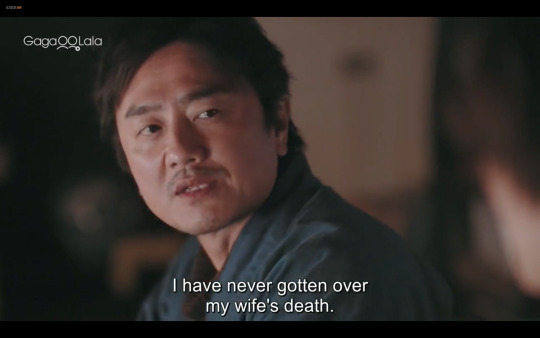

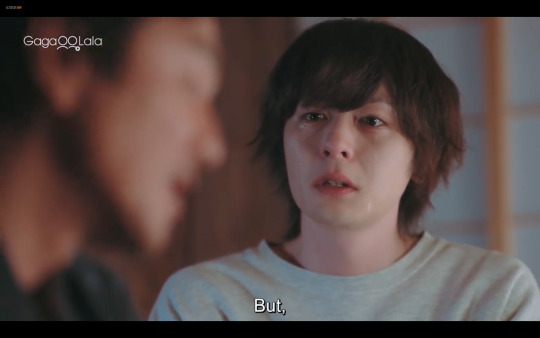
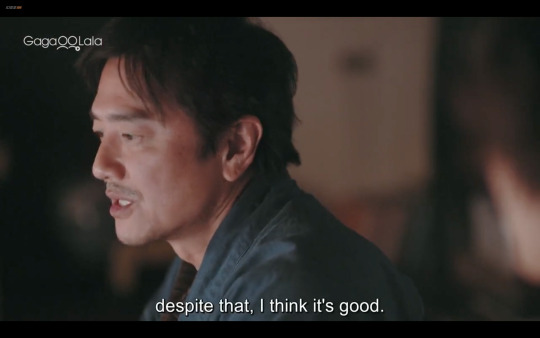



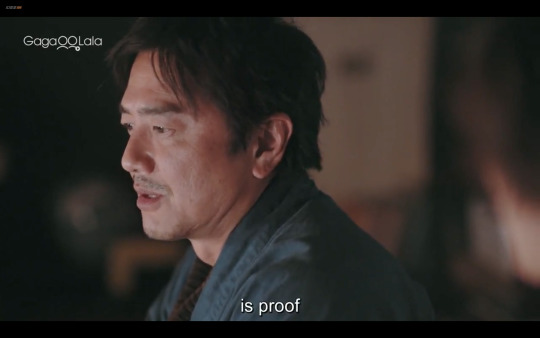

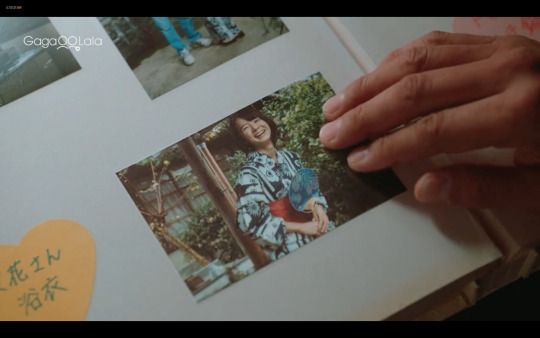
I’m using some big generalities here, so let me explain where I’m coming from. During certain large portions of my life, I’ve explored either becoming a Buddhist, or at least practiced Buddhism, particularly Zen Buddhism. While the world of Western capitalism has unfortunately taken up the majority of my current time/life, I do still have a desire to learn more about the history of Buddhism and try to incorporate some kind of practice in my daily life.
The reason why I offer that caveat is that a core of teaching in at least the spaces of Buddhism that I’ve been privy to, is the recognition of pain and suffering in one’s life. Suffering is a core tenet of Buddhism, one of the Four Noble Truths, and one that a human being does good deeds or makes merit in light of (as we see quite often in our beloved BLs) in order to receive “good” karma for a happy existence in this life or the next. (Again, mad generalizations here, but you get the point.)
I’ve been thinking about this because I often wonder if us Western viewers (I count myself as one, as an Asian-American) are too demanding for linear, clean, direct, and/or happy communication, narratives, and endings, particularly in the realm of Asian BLs, in regards to either romantic love and/or love from one’s nuclear parents/family. I think about this very much in the context of the Asian BL genre, where queerness -- as accepted, OR NOT, in Asian societies, friend groups, and families -- may indicate an existence that is not necessarily a happy one.
There are other issues by way of demands from fans that often determine the outcome of a BL script, such as shipper demands for overtly sexual content. What I’m proposing here is that, in my opinion, some of the best dramas/BLs from Asia are rooted in a reflection and acceptance of the tenets of suffering as a natural part of Asian life and, subsequently, Asian art. I further propose that because of that acceptance of suffering, that we — Western viewers — are often left potentially feeling unsatisfied or unfulfilled by a particular ending of a drama. I posit that the linear/binary/clear outcomes that Western audiences so often demand are limiting in comparison to the non-binary, non-linear journeys and conclusions of art that Asian filmmakers can reach in their work, vis à vis à general cultural understanding that pain and suffering are a part of daily life.
Before I give a drama example, let me use one from real life, that is so very often reflected in art: filial piety. I wrote about filial piety quite a bit in my reviews of Double Savage, a non-BL from Thailand that focused on the plight of a discarded son who was judged by his father as a jinx.
When I try to explain to Western friends that Asian parental love is very often conditional (I myself have experienced it, and my experiences mirror those of my friends), I experience a lot of denial.
“There is NO WAY your parents don’t love you.”
“There is NO WAY your parents will ever give up on you. Even if they treat you badly, they love you.”
“In the West, we ALWAYS end up loving our children. That’s what society demands of PARENTS. We’re CONDITIONED to be like that.”
A major cultural competency issue that Western therapists face with Asian clients is when Western therapists say to Asian clients who are having family issues, “why don’t you just talk to your parents about what you’re feeling?” Talking to Asian parents about a child’s feelings, in MANY instances, is not realistic. The language of that kind of emotion may not even exist. AND, there are unspoken social boundaries AGAINST children having those conversations with their parents in the first place. To have those conversations would very well ROCK the foundation on which Asian families are structured.
My parents may love me — the dad in Double Savage mayyyy have loved his son? — but an Asian parent like that, so rooted in their JUDGEMENT AGAINST an offspring, will often not budge. Time and time again, my Asian friends and family will talk about how they felt unloved as a child -- especially if their skin was darker, if their siblings were more successful in school, if they were a middle child, etc. VERY often, our Asian parents don’t know what us children do by way of work -- my parents don’t know anything about my work, for instance.
The Western perspective and social demands for a STYLE of loving one’s children in a very particular, involved, and empathic way -- those cultural expectations don’t necessarily exist in Asia. So we see parents like, say, Non’s father in Dark Blue Kiss; or Korn’s father in Double Savage; or ESPECIALLY Uea’s mom in Bed Friend, a fantastic example of an Asian parent who takes PERSONALLY every aspect of her son’s social and sexual “differences,” blames him for those differences, and accuses him of ruining HER life vis à vis how he was born to be the way that he is.
And yet, at least for Korn and Uea -- we see those children, for the majority of their dramas, continuing to devote themselves to their parents. Because filial piety -- the Asian cultural and social demand for RESPECTING one’s parents above all else -- is existent and EXPECTED of almost EVERY living Asian, no matter where you live on the continent or your various diasporas.
The equation is: even if you suffer at the hands of your parents, even if you don’t receive unconditional love and empathy from your parents, you must sacrifice in order to respect and serve your parents. You can imagine how much therapy even one individual would need to process that -- if that individual even ALLOWED themselves to think about what was happening, which oftentimes doesn’t even happen.
I’m not saying that filial piety EQUALS suffering. What I’m saying is that the practice of filial piety will almost always ASSUME a level of suffering that one must undertake to participate in the practice of honoring one’s parents.
Where I felt this *assumption* most strongly and recently was in my viewings of three Aof Noppharnach shows: He’s Coming To Me, Dark Blue Kiss, and Our Skyy 2 x Bad Buddy x A Tale of Thousand Stars, but I think Double Savage and Bed Friend also fall into this category as well. Very quickly:
1) HCTM was rooted in storytelling around the practice of Thai-Chinese Buddhism. Thun’s suffering was apparent: he was fatherless, he was gay, and could see ghosts. AS WELL, Med’s suffering was that he didn’t know how he had died, and why he was being held in purgatory before moving on to his next life.
2) Dark Blue Kiss was rooted in internalized homophobia. My big review of DBK is coming next week, but quickly, between the two main couples (PeteKao and SunMork), you had internalized homophobia playing various roles of emotional INTERPLAY, that AFFECTED the external emotional demonstrations of the character -- particularly in Pete, who was viscerally working on becoming a calmer person, but was triggered by Kao’s internalized homophobia to not be open about their relationship, and Pete’s jealousy subsumed him. DBK is the only show I’m mentioning here that has a clean happy ending for all couples involved, but more on that in a second.
3) OS2 x BBS x ATOTS, on the Pat and Pran side, was rooted in a clear but indirect conflict between Pat and Pran about openness and independence. If Pat and Pran had been open about their relationship (à la Pete and Kao) -- would Pat have needed to sound tough to his engineering friends that Pran *depended* on Pat to close loops? And on the Tian and Phupha side -- there is plenty we don’t know about Phupha’s past to make judgements, but I think it’s safe to say that he grew up in such a rural environment in Thailand as to make him assume that coming out and meeting his partner’s parents was an non-reality for the majority of their relationship, until the end of the OS2 series. The journey to get to the point of the ring was a tough one, particularly for Tian, who wanted more openness.
4) Both Double Savage and Bed Friend seem to end happily, especially for Uea and King in Bed Friend. But: Uea loses his parent. Yes -- he NEEDED to lose his mom, because of how toxic she was. But from an Asian family structure perspective -- he only has his sister by the end of that traumatic journey, which is not necessarily an IDEAL or complete ending. The bonds among Korn, Win, and Rung are permanently affected by the behavior of Korn and Win’s dad in Double Savage. The ending is a copacetic one -- they have survived, and will learn to survive together, after all the trauma they have lived through. But it’s not necessarily a HAPPY one. Both of these endings do not necessarily reflect the holistic ideal of the Asian family structure.
I emphasize all of this because, as I said earlier: I think a Western demand to CLOSE LOOPS in Asian dramas is unrealistic.
In Asian life (big generalization, but let me roll with it): you are angry at your parents, and you process it internally, very often without any help, and after a couple days, things go back to the way they were. The children do not demand change from their parents.
In OS2 x BBS, what I DIDN’T SEE -- and, from this framework, what I argue that I DIDN’T *NEED* TO SEE -- were any clarifying conversations between Pat and Pran about how either of them would CHANGE for their relationship. The biggest confession we got was Pat telling Pran, “without you, there is no me,” and Pran quietly agreeing (thank you to @lurkingteapot and @dimplesandfierceeyes for the incredible post on the improved translation of “I can’t live without you”).
But throughout the episodes, we saw their existence together, and arguably, their conditions -- how each of them has organized himself to comport to the other’s immediate needs. How Pran’s larger burden of keeping in the closet to keep his nuclear family structure stable kept them from being totally out, and how Pran designed fibs to be able to have at least one public demonstration of love between him and Pat on stage. They know they cannot solve intergenerational trauma in the span of a series. They’re still closeted two years later. And throughout all of this: how Pat digests Pran’s needs, and keeps his (Pat’s) own needs for openness at bay. We know he feels pain, too, when he makes his confession to Pran in Pha Pun Dao. We know he’s watching Pran as Pran hesitates to put on the bruise cream.
I feel that Pat’s acceptance of this existence is both heart-rending and utterly beautiful from the perspective of seeing Aof’s work as *Asian* art. I feel like, as an Asian, that I KNOW, that PAT KNOWS, what Pran has to lose. Pran has A LOT to lose. And so, Pat -- instead of demanding for outing and openness -- will hold what Pran needs him to hold. He knows when Pran is grumpy, and needs to be grumpy. And Pran’s got a lot to deal with. He’s got so much that he’ll need to go to Singapore, likely to get separation from his mother -- and that will result in him and Pat being separated (and I’m intentionally not analyzing Pran’s need for space from Pat here, but I think we can safely argue that, too, as Pat’s helpful attitude may smother Pran at times) (and there’s also the issue of the nuclear pain that Pat himself may feel at losing trust in his father for his father’s past foibles).
After the OS2 episodes, I didn’t need to know THE REASONS, the stark REASONING for why Pran needed to go to Singapore -- because, indirectly, it was already very clear to me that these young men were already holding tremendous burdens. Singapore, for Pran AND for Pat, could have ultimately been a motivator for growth. But I don’t need to know this. All I know is that they continue to have various levels of pain that they will be dealing with in their nascent adult lives.
While Dark Blue Kiss ULTIMATELY had happy endings -- how it got there was PAINFUL. Kao was ROOTED in fear that he would upend his family’s stability, while being the breadwinner. He was held back by extremely traditional role expectations of an older son. And he had no communication with his mother about straying from those roles. Pete’s dad served as the first -- and, I’d argue, maybe BL’s first -- paradigm-breaker as a parent, being SO open about his son’s queerness as to encourage healthy sex practices. But what I argue in this thesis is that up until the very last, bitter end, Kao was relegated to ASSUME that he would live in pain. His expectation was that Pete would ride with him. Pete couldn’t take it anymore and bubbled over. And Kao was forced to make a decision, for Pete’s sake, literally, to BE open, and to save the relationship. That shit ain’t easy.
Lots of folks who have read my posts on this site know that I appreciate a good Asian drama rooted in family and/or community trauma, like 10 Years Ticket. It’s the way in which Asian filmmakers depict this trauma that speaks very much to my life, my culture, and my viewpoint on what’s realistic in this world, and how that reality can be depicted in art. What I’ve found in watching Asian dramas is... I don’t always want clean endings. I don’t always want loops closed.
Sometimes, Asian kids can’t talk to their parents (Pran, Kao). If you grow up like that, you don’t immediately learn the language of intimacy for your family members, your friends, your lovers (Pran’s struggles after BBS/ep5, Thun’s coming out and not knowing the words for it). It might be EASY, or culturally UNQUESTIONABLE, to not argue with your parents about the ways in which they engage with their children (Korn, Win, Pran). Sometimes, to make a break in order to survive, you need to leave a toxic family member behind, which is NOT an ideal scenario (Uea).
Sometimes, you lose the love of your life (Ueda-san in Our Dining Table). Sometimes, you fall in love with someone — and you find that you can’t *exist* without them (Pat to Pran). And you have to live with the pain. I might even posit that the risk of that pain makes the love you have, either for the person living or the person passed, that much more meaningful to you.
I watch Asian dramas because I don’t feel like Asian filmmakers are subject to the Western demand to clean up all emotionally questionable loose ends. This is not When Harry Met Sally. Harry and Sally should have only remained friends, and not gotten married -- even Nora Ephron and Rob Reiner knew that -- but they also realized that Western audiences would not accept such an ending.
“The script initially ended with Harry and Sally remaining friends and not pursuing a romantic relationship because she felt that was "the true ending", as did Reiner. Eventually, Ephron and Reiner realized that it would be a more appropriate ending for them to marry, though they admit that this was generally not a realistic outcome.”
If I don’t get clean clarity in Asian dramas, I’m okay with it. My mind switches to the pain POV, that relativity mindset. Everyday life in Asian cultures can handle the weight of the painful and sufferable unknown. And that’s why I love these shows.
And, OF COURSE, not ALL Asian dramas are like this! Cherry Magic ended wonderfully. Old Fashion Cupcake ended beautifully. KinnPorsche ended sexily, if not a little confusedly (are they related? kinda? or not? whatever?). Minato’s Laundromat ended happily -- although we’ll see their relationship pain points in the upcoming second season. And we see relationship pain points in the ongoing drama of Shiro and Kenji’s relationship in What Did You Eat Yesterday -- all while they share their happy nightly meals together at their kitchen table.
Life is complicated. I posit that Asian dramas, for my taste, satisfaction, and cultural relativity, do a much better job at depicting that complicatedness than the West can ever do, and that’s why I stand so often on my soapbox to encourage Western viewers to understand these Asian cultural touchpoints more -- to learn about how we’ve accepted pain and suffering as an automatic given in our Asian lives, from our cultures, our spiritual practices, and from living amongst each other.
#our skyy 2 x bad buddy x a tale of thousand stars#bad buddy#a tale of thousand stars#our skyy 2 x bbs x atots#he's coming to me#dark blue kiss#bed friend#double savage#pat x pran#pran x pat#patpran#pranpat#pete x kao#kao x pete#petekao#our dining table#minoru x yutaka#yutaka x minoru#pain and suffering in asian culture#suffering in buddhism#the four noble truths#pain and suffering in asian dramas#pain and suffering in asian BLs
177 notes
·
View notes
Text
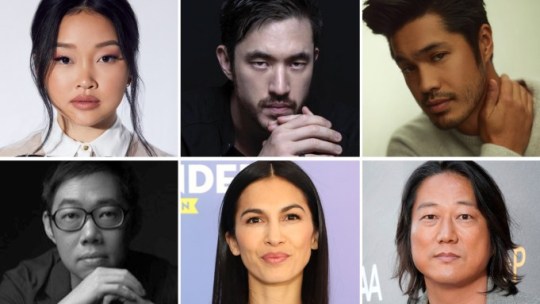
EXCLUSIVE: Lana Condor (To All The Boys franchise), Andrew Koji (Bullet Train), Ross Butler (Shazam! franchise), Sung Kang (Fast & Furious franchise) and Elodie Yung (The Cleaning Lady) are among those set to star in Worth the Wait, a romantic comedy marking the U.S. directorial debut of award-winning Taiwanese filmmaker Tom Shu-Yu Lin (The Garden of Evening Mists), which has wrapped production in Vancouver and Kuala Lumpur.
Others cast include Karena Lam (American Girl), Osric Chau (Supernatural), Ali Fumiko Whitney (The Road Dance), Ricky He (From), Kheng Hua Tan (Crazy Rich Asians) and Yu-Beng Lim (Rebel Moon).
An English-language indie set against the intercontinental backdrops of Seattle and Kuala Lumpur, which is said to be in the vein of Love Actually, Worth the Wait follows a year in the interconnected lives and romances of an all-Asian ensemble cast.
(via Deadline)
#worth the wait#lana condor#andrew koji#russ butler#sung kang#elodie yung#osric chau#karena lam#ricky he#kheng hua tan#yu beng lim#news#article#media representation#representation in media#ali fumiko whitney
37 notes
·
View notes
Text
It leaves me very confused and a little sad that there isn’t a richer, larger, more united and more enthusiastic fanbase for the Avatar movies. I’ve been waiting for commentaries on the second movie, both indulging and critical, and there’s a mere trickle of content appearing in the tags. So far, they all fall in weirdly isolated columns of character x reader, Kiri stans, ‘I loved the movie!’ one liners, ‘boycott Avatar’, Na’vi learners and people being horny over clone!Quaritch on main.
There isn’t much meta despite the universe being huge, fairly consistent, and ever-expanding. The like-to-reblog ratio on posts is catastrophic. There’s not much art. I miss people being excited. I miss discourse, headcanons and AUs! I miss people giving detailed reasons for the way they respond to the movie, no matter whether they liked it or not. Nothing seems to stick despite so many refined details, e.g. the Metkayina using sign language underwater and having inner eyelids like amphibians! Or the fact that the explanations for the use of English, Kiri’s and Spider’s existence etc. were quite thought-out and satisfying.
Sure, there’s the epic Pandoran world on one hand, and then there’s of course the “Cameronism”: The two-pronged personal fantasy of the director who is playfully exploring colonialism as negative while reaffirming it in the same breath, combined with a bland, overly conservative story. If the plot really reflects Cameron’s thinking, it is dangerously outdated by 15-20 years and cannot stay relevant. But the point to me is: It was to be expected.
Avatar and Avatar The Way Of Water are US-American Hollywood stories based on military culture. Once you know that, it is my firm belief that it’s possible to detach yourself from that lense. But perhaps I really am arguing from a merely European perspective that is so used to mediocre language dubs, the strange obsession with heroism, patriotism, weapons and violence, and other US-specific phenomenons that just feel generally outlandish to non-US viewers. We don’t have the same problems, so being constantly faced with yours through entertainment media causes us to... kinda tune those out and enjoy what’s left, tbh. Because some of them are really painfully cringe up to completely unthinkable to the rest of the world. Even the first Avatar was never intended as a global story; - although the RDA is supposedly composed of international players, the representation on Pandora is purely US-American, even more, it’s not even covering all of your own ethnic variety. So if we can’t even expect European, Asian, African and South-American scientists in the space mission, what are we supposed to expect about indigenous voices of smaller civilizations?
What I’m trying to say is, US media currently have a certain range of messages they convey even here in Europe, because, well, you still have the monopoly on filmmaking and we watch all of your stuff. However, we are very aware that your POV is narrow and limited since it rarely actually applies to us. And sooo, what do we do with the reality of our own exclusion that we are inevitably constantly reflecting? We ignore it, we roll our eyes and don’t think too deeply on it, we leave you guys to solve your own problems and enjoy what’s given. Perhaps we are able to separate a fantastic narrative from the cultural/ political clashes that come with it a little better, because most of the time, we don’t identify with the latter. I’m not saying the differences are in any way good or that they should stay that way. I’m saying that from where I’m at, Batman, Spiderman and Avatar don’t look too different to me when it comes to elaborate escapist fantasies about good vs. evil, and media might not quite be as relevant to conflicts as they seem in the US. Education is much more important, and to act in real life rather than in fiction. As for me, I’ll appreciate Avatar like any other fandom space, because the concept is extraordinary, its future potential still enormous, and I would love for more positive interaction. I harbor the sliiiight hope that Cameron might grow out of his current spree and redeem himself in one of the later sequels. Since there are going to be 3 more of them, you know. There you go :)
#avatar 2#avatar the way of water#avatar 2 analysis#analysis#avatar the way of water analysis#wherethekiteflies
214 notes
·
View notes
Text
The Story of the Original "Tea" Dancer
There was a delightful story in the Times on February 4th about George Lee, on whom Balanchine created the Tea variation in The Nutcracker. Here it is.
From Ballet to Blackjack, a Dance Pioneer’s Amazing Odyssey
George Lee was the original Tea in “George Balanchine’s The Nutcracker.” A documentary filmmaker found him and a lost part of ballet history in Las Vegas.
By Siobhan Burke
Feb. 4, 2024
Among the blaring lights and all-hours amusements of downtown Las Vegas, in a sea of slot machines at the Four Queens Hotel and Casino, George Lee sits quietly at a blackjack table, dealing cards eight hours a day, five days a week, a job he’s been doing for more than 40 years.
Lee, 88, was likely in his usual spot when the filmmaker Jennifer Lin was sifting through old photos at the New York Public Library for the Performing Arts in 2022, wondering what had become of a dancer with a notable place in ballet history. Pictured in a publicity shot for the original production of “George Balanchine’s The Nutcracker,” in the role known as Tea, was a young Asian dancer identified as George Li.
For Lin, a veteran newspaper reporter turned documentarian, the picture raised intriguing questions. In 1954, when the photo was taken, it was rare to see dancers of color on the stage of New York City Ballet, the company Balanchine co-founded. Who was this young man, this breaker of racial barriers, this pioneer? Was he still alive? And if so, what was he up to? “I became absolutely obsessed with trying to find out what happened to George Li,” Lin said in a video interview.
In just over a year, that obsession has blossomed into a short film, “Ten Times Better,” that chronicles the unexpected story of Lee’s life: from his childhood in 1940s Shanghai, where his performing career began; to a refugee camp in the Philippines, where he fled with his mother, a Polish ballet dancer, in 1949; to New York City and the School of American Ballet, where Balanchine cast him in “The Nutcracker” to “Flower Drum Song” on Broadway, his first of many musical theater gigs; and ultimately, to Las Vegas, where he left dance for blackjack dealing in 1980. (He changed the spelling of his last name in 1959, when he became a United States citizen.)
The film will have its premiere on Feb. 10 as part of the Dance on Camera Festival at Film at Lincoln Center. Lee, who last visited New York in 1993, will be in town for the occasion, an opportunity for long-overdue recognition.
“So many years I haven’t done ballet,” Lee said over coffee at the Four Queens on a recent Sunday, after his shift. “And then suddenly Jennifer comes and tries to bring everything up. To me, it was like a shock.”

George Lee today. He has been a blackjack dealer in Las Vegas for more than 40 years. Photo: Saeed Rahbaran for The New York Times
But Lin’s interest has been welcome. “Jennifer is so perfect, she knows exactly everything,” he said. “She knows my background more than I do.”
Lin was not the only one who had been searching for Lee. In 2017, while organizing an exhibition on “The Nutcracker,” Arlene Yu, who worked for the New York Public Library at the time and is now Lincoln Center’s head archivist, was puzzled by the relatively few traces of him in the library’s vast dance collection.
“I think I’d tracked him down to 1961, but after that, it was really hard to find anything,” she said. “Whereas if you look at some of his peers in ‘The Nutcracker’ in 1954, they went on to careers where there was a lot more documentation.”
Lin’s fascination with Lee emerged through her work on another film, about Phil Chan and Georgina Pazcoguin, the founders of Final Bow for Yellowface, an initiative focused on ending offensive depictions of Asians in ballet. The role of Tea, a divertissement historically rife with such stereotypes—in Balanchine’s canonical version of “The Nutcracker” and others—has been a flashpoint in those efforts.
Chan, too, had been struck by the 1954 images of “The Nutcracker,” which he came across during a library fellowship in 2020.
“I’m like, wait, there’s actually a Chinese guy,” he said — as opposed to a non-Chinese dancer with the saffron makeup or heavily painted eyes or even the artificial buck teeth worn in some old productions. “Who is this guy? And why do I not know about him?”
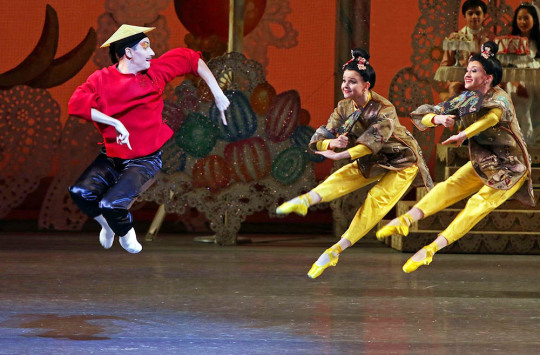
The "Tea" variation in The Nutcracker at City Ballet in 2015. The dancers are Ralph Ippolito, Claire Von Enck, and Baily Jones. Photo: Andrea Mohin for The New York Times
Lee, in his heyday, was a dancer to know. At just 12, he was already winning public praise. In a preview of a recital of the King-Yanover School in Shanghai, the North China Daily News called him an “extremely promising young Chinese boy, whose technique is of a very high standard.” A reviewer wrote that he “already may be said to be the best Chinese interpreter of Western ballet.” (Lee saved these newspaper clippings and shared them with Lin when they eventually met.)
Born in Hong Kong in 1935, Lee moved to Shanghai with his mother in 1941, when Shanghai was under Japanese occupation. During World War II, his father, a Chinese acrobat, was in Kunming in western China; he died in an accident on his way to visit Lee in 1945.
Lee’s mother, Stanislawa Lee, who had danced with the Warsaw Opera, was his first ballet teacher; as a child, he would follow along with her daily barre exercises. Shanghai had a significant Russian population, and with that a robust ballet scene. To earn money, Stanislawa arranged for her son to perform in nightclubs—“like a polka dance, or Russian dance, or sailor dance,” Lee said. The clubs would pay them in rice.

Little George Li in his Shanghai days. Photo: George Lee private collection via the NY Times
Fearing the Chinese Communist Party’s takeover in 1949, the two evacuated to the Philippines. An expected four months as refugees turned into two years. In 1951, an American friend of Lee’s father sponsored them to come to New York, where he introduced Lee to the School of American Ballet, City Ballet’s affiliated school.
As Lee narrates these twists and turns in the film, one memory anchors his recollections. Before they immigrated, his mother issued a warning. “You are going to America, it’s all white people, and you better be 10 times better,” he recalls her saying. “Remember that: 10 times better!”
The footage of Lee in his 20s suggests he took that advice to heart. In television appearances — with the company of the ballet star André Eglevsky, and in a number from “Flower Drum Song” on the Ed Sullivan Show — his power and precision dazzle.
“He was good; he was really good,” Chan said. “Clean fifth, high jump, polished turns, stick the landing—the training is all there. He’s already 10 times better than everybody else.”
In a 1979 interview heard in the film, the former City Ballet soloist Richard Thomas, who took over the role of Tea, raves about Lee’s peerless acrobatic jumps: “He was wonderful! Balanchine choreographed a variation for him that none of us have ever been able to equal.”
As Lee remembers it, Balanchine spent 15 minutes with him in the studio. “He said, ‘What can you do good? Show me what you can do good,’ so I show him something,” Lee said. “I did things like splits and double turns, down and up, turn again like a ball, and that’s it. He picked up some things and put them together.”
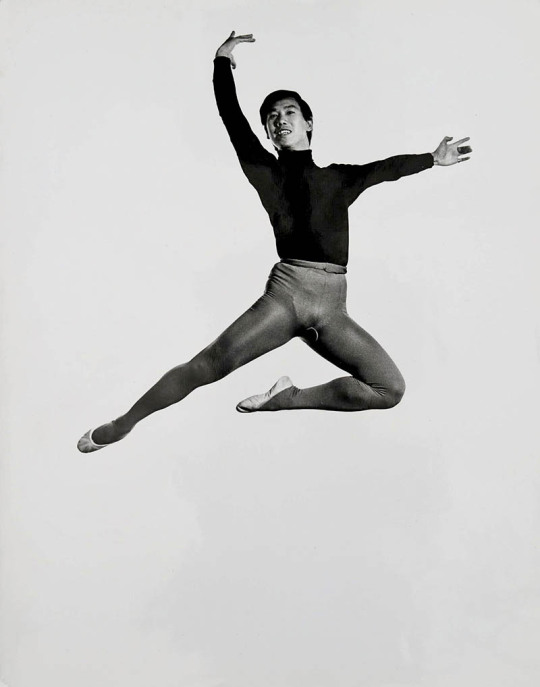
George Li as a student at the School of American Ballet. Photo: George Lee private collection via the NY Times
He recalled that during a “Nutcracker” dress rehearsal, the City Ballet makeup artist put him in full yellowface, and Balanchine insisted he take off the makeup. “He is Asian enough! Why do you make him more?” he remembers Balanchine saying. Lee was costumed in the Fu Manchu mustache, queue ponytail and rice paddy hat often associated with the role, now widely critiqued as racist caricatures. But he said he didn’t take offense. “Dancing is dancing,” he said.
Lee performed in “The Nutcracker” as a student; he was never invited to join City Ballet. But he clearly excelled in his classes and onstage. For that, he credits his strong foundation of Russian training in China — and his mother’s exacting standards. He can still see her standing in the studio doorway at the School of American Ballet, observing closely.
“She was watching the class and then would go home and tell me, ‘You did this wrong or that wrong, you got to do it this way,’” he said. “So I really worked hard, and I was good.” (His favorite teacher at the school was the demanding Anatole Oboukhoff: “He always wanted more, and that’s why I liked him very much.”)
To make a living Lee turned to musical theater, performing in shows like “Baker Street” on Broadway and the cabaret “Carol Channing with her 10 Stout-Hearted Men,” which opened in London. He pieced together jobs for more than 20 years, often unsure of what would come next.

Lee in flight in a production of “Flower Drum Song” in Las Vegas in the early 1960s. Photo: George Lee personal collection via the NY Times
He was dancing in a Vegas revue, “Alcazar de Paris,” now in his 40s, when a blackjack dealer friend suggested he go to dealer school. “I can’t dance all my life,” he remembers thinking. He decided to give dealing a try and soon landed a job at the Four Queens. Aside from four years at another casino, he has worked there ever since.
In December 2022, he got a voice mail message from Lin. With her reporting skills and some crucial assists from Yu, she had determined that he lived in Las Vegas. Of the five phone numbers she found for George Lees, four led nowhere; his was the last she tried.
When they finally connected, she put her other project on hold to focus on his story; she and her small creative team had a final cut by November. “George is 88, and I wanted him to be able to enjoy this moment, where people recognize him for his dancing,” she said.
As he prepares to return to New York, Lee said he felt gratified, most of all, for his mother.
“I’m proud for her that I didn’t let her down,” he said. “It makes me feel better to look up at her and say: ‘Look, mother, now you see what’s happening, what you did for me. You gave me all the good foundation, everything. Through you, I’m here now.’”

George Lee today. Photo: Saeed Rahbaran for The New York Times
#Balanchine#George Lee#George Li#Nutcracker ballet#Balanchine's Nutcracker#Asian stereotypes#Nutcracker Chinese Dance#New York City Ballet#NYCB#Ten Times Better#ballet film#Saeed Rahbaran#Andrea Mohin
21 notes
·
View notes
Photo
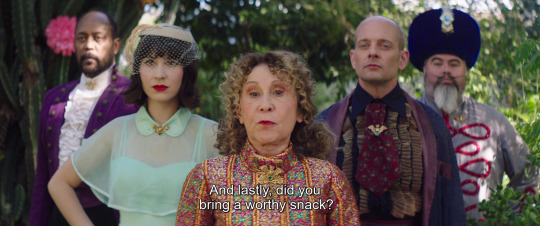

Rhea Pearlman & Miya Cech in “ Marvelous and the Black Hole “ (a magical film in so many ways)
#miya cech#rhea perlman#marvelous and the black hole#pocky#kate tsang#female filmmakers#female directed movies#female directors#female screenwriters#women in film#asian american
11 notes
·
View notes
Text
DANIEL DAE KIM: BEACON OF FIRE
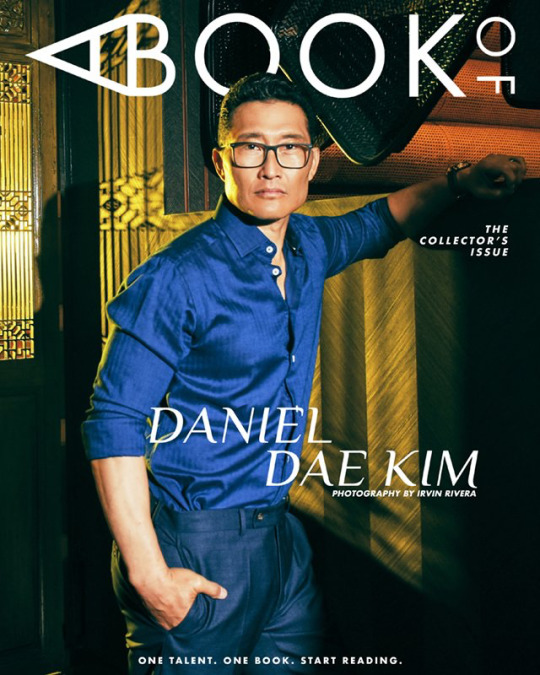
Daniel Dae Kim, a paragon of versatility in the entertainment industry, continues to enchant audiences with his rich and compelling character portrayals. Esteemed for his significant roles in landmark television series such as Lost and Hawaii Five-0, Kim has also made waves with his reflective insights on the finale of the Good Doctor, where he served not only as an actor but as an executive producer. As speculation mounts about his character's return in the show's concluding season, Kim's artistic reach extends further with his riveting performance as fire lord Ozai in the much-anticipated live-action adaptation of Netflix’s Avatar: The Last Airbender. In addition to his work on screen, Daniel Dae Kim's return to Broadway in the production of Yellow Face by David Henry Hwang is a venture into the comedic genre, offering a fresh perspective on relevant cultural themes with a timeless appeal.
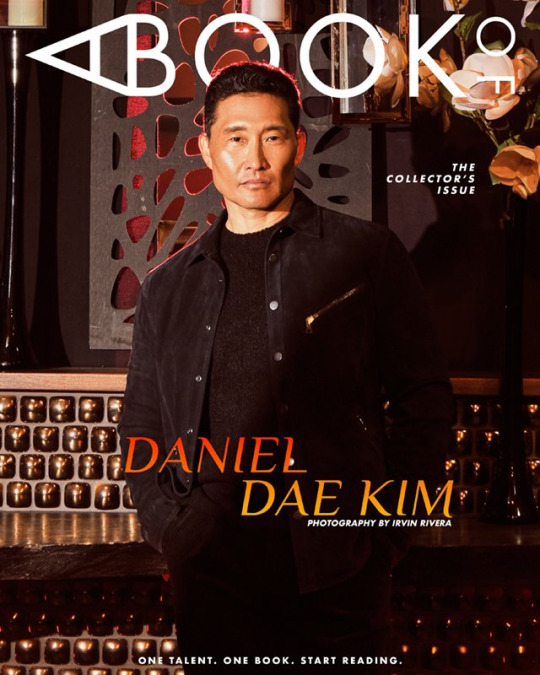
In the heart of Hollywood's ever-changing landscape, Daniel Dae Kim stands out not just as an actor and producer but as a visionary leader dedicated to reshaping the narrative around Asian American stories and beyond. Founding 3AD, a production company that underscores his commitment to amplifying diverse narratives within the industry, Kim ignited a movement towards inclusivity and representation, drawing inspiration from the overlooked and undervalued voices at the proverbial high school party of life. His mission, grounded in the belief that entertainment should both captivate and challenge, has already borne fruit with successes like the Good Doctor. Yet, Kim emphasizes, 3AD's scope transcends any single community, aiming instead to spotlight a mosaic of untold stories, thereby enriching our collective cultural tapestry.
Kim's commitment to portraying multifaceted characters that challenge stercotypes and his explorations beyond acting into producing reflect a continuous pursuit of artistic growth and contribution to the cultural dialogue. Beyond his on-sereen prowess, Kim's advocacy for greater diversity and inclusion in Hollywood has made him a pivotal figure in the push for a more
equitable entertainment landscape.
With a career that spans critical acclaim and a fervent dedication to cultural change, Daniel Dac Kim remains a beacon of inspiration and a force for progress in the ever-evolving world of entertainment. Read on and get inspired by this slice of Daniel Dae Kim's thoughts on his life as a father, an actor, a producer, and more.

How's the Sunrise House Event at Sundance? How did it go?
They were really fantastic. We had some really informative panels with some industry leaders from every sector. We had a great fireside chat with Steve Yeun. And we had another one with Lucy Liu and that seemed good.
The Fireside Chats seemed to go really well. The feedback was really good. We threw some banging parties. And so you know, it was a little bit of substance and a little bit of fun.
And it's really great and inspiring that you guys are doing this, because I'm seeing a lot more mainstream visibility, especially in Sundance as well for AAPI.
Yes.
It's really cool.
What's funny is that AAPI filmmakers have been on it for a while at Sundance, they just have never had a home, you know, somewhere where they can be celebrated and their achievements can be spotlighted. And also, I think there's just a broader movement toward multiculturalism. And that's an emphasis of our house as well. It's not just for the AAPI community, we took specific efforts to do outreach to other communities of color and I think that's really important.
That's amazing. Especially how you guys are extending your arms to the communities, building and growing it.
That's what it's about, that's what it's about. We had a dinner one night where we invited all the other major communities of color, and we broke bread together, we talked and hopefully, that's just the beginning of broader initiatives among our houses.
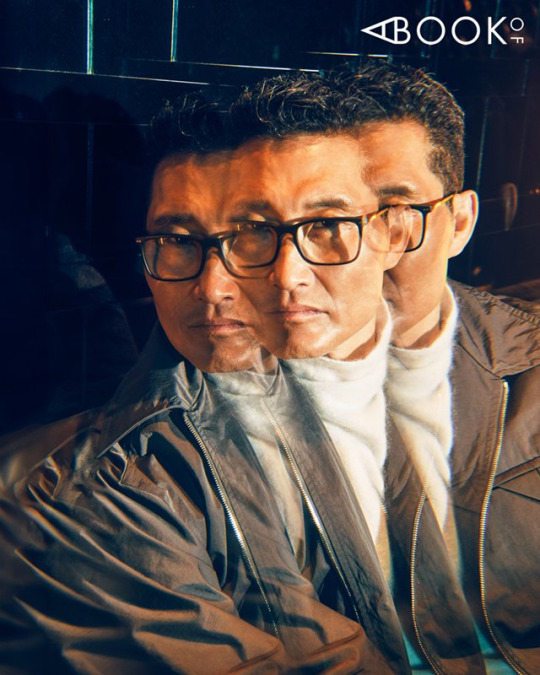
How did you approach the complex character of Fire Lord Ozai?
As a dad. You know, I have two kids and just thinking about the ways that he's actually in his own way trying to guide his children to their best future is what I kind of keyed into. We may make mistakes as fathers, some intentional, some unintentional, but it doesn't mean... I don't think Ozai doesn't love his children. I think he does, but his love comes out in ways very different from the way I express it.
The intention is there. It's just expressed in its own ways.
Yes. And, they can be damaging. They are damaging- physically, in the case of Zuko, but we damage our children without knowing it. We've been damaged by our parents without them knowing it. It's part of the cycle of life and that's kind of how I found Ozai's humanity.
Now, speaking of Zuko and Iroh, and Ozai's family dynamics. How were you all able to explore this complex family relationship on screen?
One of the ways that we did it was to just get to know one another. I've known Paul Sun-Hyung Lee for a while, and I'm a big fan of his work. And so there was a natural bond between us right from the start, and I really enjoyed seeing Lizzie's work as Azula, and watching Dallas' work as Zuko was fantastic, and just seeing what they brought to the table allowed me to kind of see who my children were. Because we were coming together as actors, and we were seeing what each actor brought to the table. But I was able to use that to inform my relationship with the children. What are they good at? What do they need help with? Where do we want to guide their future? Where do I want to guide their strengths and their weaknesses? So things like that, and a little off-camera bonding was really important.
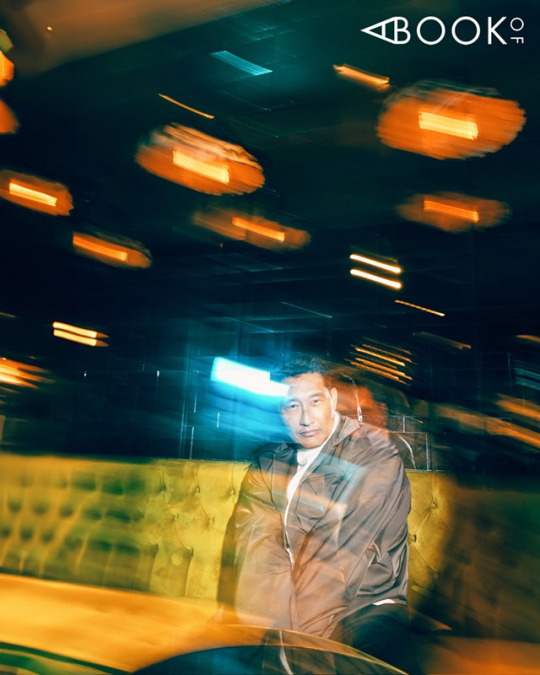
You played pivotal roles that defied stereotypes. How important is it for you to portray complex characters that go beyond just one archetype?
It's just interesting as an actor, you know. I never want to be doing one thing forever, I've been in situations where I played a character for six years, seven years, but, in the case of Lost, I'm so grateful that there was so much growth in that character. So it never became boring. But if I'm lucky enough to have the opportunity to work a lot, I want to use those opportunities to explore things I'm interested in as an artist. And part of that is just kind of finding a variety of kinds of people to play with.
And you've produced, you've acted, and you've explored all these other avenues in terms of creating art. What other things do you want to explore in the near future, aside from those realms?
Producing has been really interesting, the process of creation of television and film and theater has been something that has intrigued me for a while. Yes, I think, to have a holistic view of how one makes entertainment and how it affects us as a society and vice versa, I think it's a really interesting question. How entertainment reflects the cultures of our time and at the same time, pushes it in one direction or another.
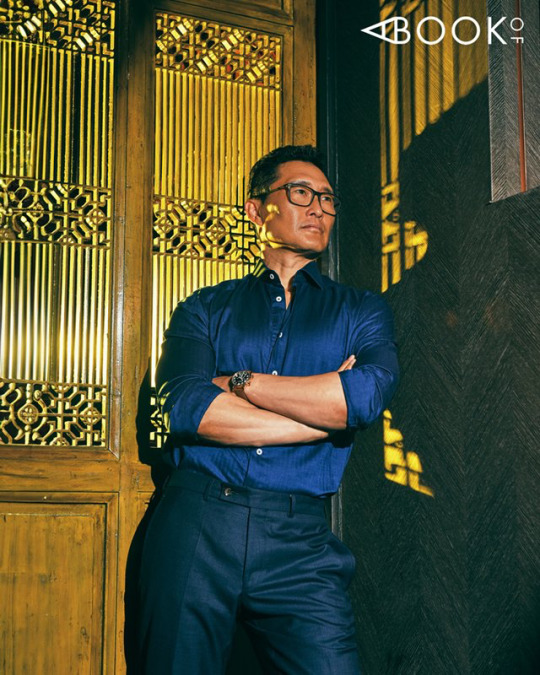
What's the most valuable piece of advice you received from someone either in the industry or out of the industry that you always still carry with you?
That there's no room in show business for you, you have to make room. I keep that in mind because it encourages me to think that nothing is a given, nothing should be taken for granted and anything that I'm looking to do will probably require work because no one is asking me to do it.
What's the one thing people will remember you after the credits roll? What do you want to be remembered as?
First and foremost, a good actor, because that's my life's passion, and I would say, second of all, someone who tried to use his platform to bring us together as a society.
What kind of book will Daniel Dae Kim be?
Well, I will tell you that I'm working on a project right now based on a book by Chang-Rae Lee, his first major novel - Native Speaker that came out in the 80s. And I have a real connection to that novel, because Chang-Rae and I are of the same generation as Korean Americans, and a lot of the issues he wrestles with in that book are issues that I've wrestled with my whole life. It's a beautifully written book. His prose is so eloquent and poetic. And it was the first time I'd ever read a book that kind of felt like he was talking to me.
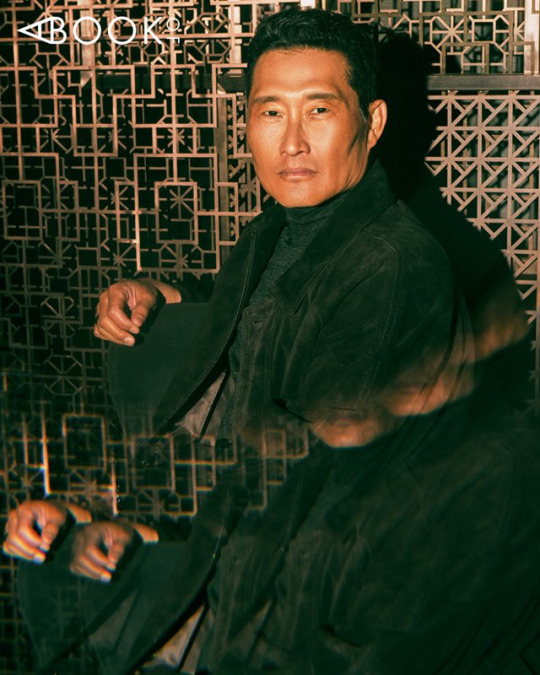
#natla#atla#netflix avatar#netflix atla#avatar the last airbender#avatar netflix#atla netflix#daniel dae kim#interview#photoshoot#a book of
10 notes
·
View notes
Text
1970s Cinema
The 1970s were a dynamic and transformative decade for cinema, with filmmakers pushing boundaries, exploring new themes, and producing influential films.
New Hollywood: The 1970s witnessed the continuation of the New Hollywood era, characterized by bold and innovative filmmaking. Directors like Martin Scorsese, Francis Ford Coppola, Steven Spielberg, and George Lucas emerged during this time, bringing a fresh and personal approach to their films.
American New Wave: The 1970s saw the rise of the American New Wave, also known as the "Movie Brats" era. Filmmakers like Scorsese, Coppola, and Robert Altman created gritty, character-driven films that tackled social issues and pushed the boundaries of storytelling. Notable films include "Taxi Driver" (1976), "The Godfather" (1972), "Jaws" (1975), and "Star Wars" (1977).
Blaxploitation: Blaxploitation films, primarily featuring African-American casts and urban themes, gained popularity in the 1970s. Films like "Shaft" (1971), "Super Fly" (1972), and "Foxy Brown" (1974) celebrated black culture and addressed social and political issues.
Disaster Films: The 1970s saw a surge in disaster films, often featuring star-studded ensemble casts and high-stakes scenarios. Movies like "The Towering Inferno" (1974), "Earthquake" (1974), and "Airport" (1970) captivated audiences with their suspenseful and action-packed narratives.
Horror Films: The 1970s is often referred to as the "Golden Age of Horror." Filmmakers like Wes Craven, John Carpenter, and Tobe Hooper revolutionized the genre with films like "The Texas Chainsaw Massacre" (1974), "Halloween" (1978), and "The Exorcist" (1973), which became instant classics.
Asian Cinema: The 1970s witnessed a surge in popularity for Asian cinema, particularly in martial arts films from Hong Kong. Legendary martial arts actors like Bruce Lee gained international recognition with films such as "Enter the Dragon" (1973) and "The Way of the Dragon" (1972).
European Art House Cinema: European art house cinema continued to flourish in the 1970s. Directors like Federico Fellini, Ingmar Bergman, and Werner Herzog produced influential films like "Amarcord" (1973), "Cries and Whispers" (1972), and "Aguirre, the Wrath of God" (1972).
Social and Political Films: The 1970s were marked by an increased focus on social and political issues. Films like "All the President's Men" (1976), "Dog Day Afternoon" (1975), and "One Flew Over the Cuckoo's Nest" (1975) reflected the era's cultural and political climate.
10 notes
·
View notes
Text

Sandra Oh’s Sense of Purpose
The actor discusses Hollywood survival skills, winning the lottery, and her interest in telling “messy” Asian American stories.
Sandra Oh wanted to talk to me, first, about the Monterey Park shooting. The attack had taken place a week earlier, not far from her home in Los Angeles. She was still working through her feelings about it. Seeing her face fill my laptop screen over Zoom, I thought about her ability as an actor to externalize emotion with the camera up close. For our interview, Oh had set up her computer in her back yard. A fire pit, with cushions and an L-shaped seating area, was behind her. As she discussed the shooting, Oh stared at a point off to her right; her eyebrows sloped upward, and her brow furrowed. She radiated dismay.
After we discussed the tragedy for a few minutes, she asked if she could start recording the conversation. She wanted to keep a copy of it for herself. Perhaps it was her age, she told me––fifty-one years old. She had been feeling the urge to gather her thoughts and “put them all together one day.” (She told me that she’s kept journals going back to the fifth grade.) She’d been dwelling on the shooting, turning over its meaning in her head––particularly the fact that the perpetrator turned out to be an Asian immigrant himself. The reflection is, in some ways, part of her work. Last October, during a panel I moderated at The New Yorker Festival, on “identity and craft,” Oh said that in the past the characters she played hadn’t “necessarily had their history, their family, their race, their culture explored.” Now, she added, her overriding interest was in “telling Asian American stories.”
Oh is still revered by fans for her decade-long stint as Cristina Yang, the unapologetically ambitious cardiothoracic surgeon and devoted best friend on “Grey’s Anatomy.” More recently, her portrayal of the world-weary British intelligence agent Eve Polastri, in BBC America’s breakout hit “Killing Eve,” earned her a raft of awards and critical plaudits. It was during the pandemic, however, as violence against Asians surged, that Oh’s artistic choices seemed to coalesce into a sense of purpose. She was at her farcical best as Ji-Yoon Kim, the pathbreaking English-department chair at Pembroke University, in the Netflix series “The Chair,” released in 2021. Last summer, she began production of an original Hulu comedy movie with the comedian and actress Nora Lum, otherwise known as Awkwafina. Oh is now filming a miniseries adaptation of “The Sympathizer,” Viet Thanh Nguyen’s tragicomic novel on the Vietnamese refugee experience, which won the Pulitzer Prize in 2016. The project is slated for HBO, and one of its creative visionaries is the South Korean filmmaker Park Chan-wook.

In March, 2021, Oh was in the middle of production of “The Chair,” in Pennsylvania, when a white man went on a shooting rampage in Georgia, killing eight people, six of whom were women of Asian descent. Afterward, Oh made an unexpected appearance at a “Stop Asian Hate” rally in Pittsburgh. She took the megaphone and delivered a rousing speech that culminated with her asking the crowd to join her in repeating a mantra, which could have been a credo for her Hollywood career. “I am proud to be Asian,” she said, thrusting her hand high, and then pointing it at the ground in front of her. “I belong here.”
In the span of more than two hours on a Friday last month, she spoke about identity, opportunity, winning the lottery, and why she’s no longer waiting for the “white dudes” of the industry to call.
#sandra oh#interview#the new yorker#she's back#she's breathtaking#this is a sandra oh safe space#life after killing eve#this is what it looks like
51 notes
·
View notes
Text
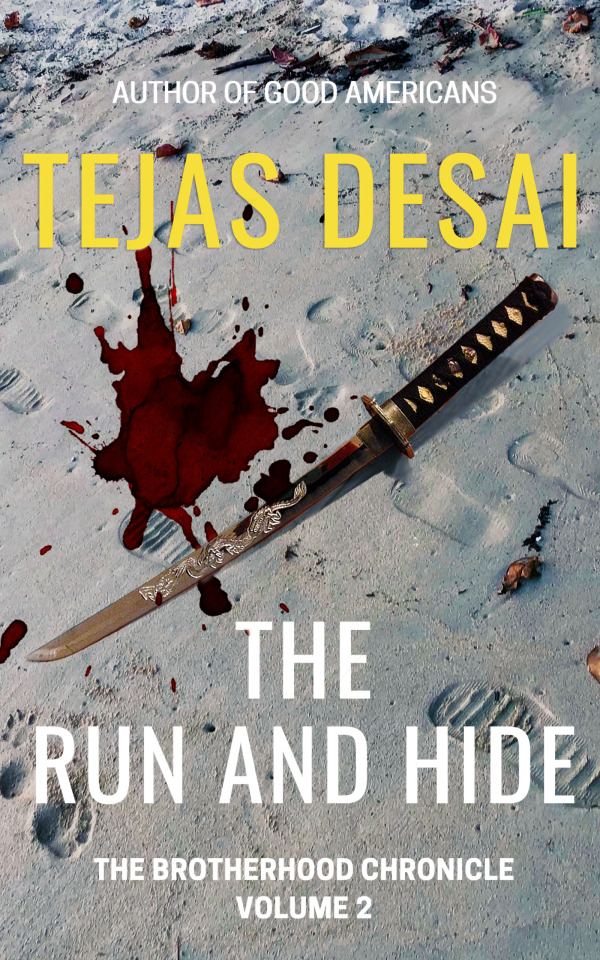
11 years ago today, my first novel The Brotherhood was published. 5 years ago today, the second edition of The Brotherhood was published.
The Brotherhood remains my most popular book. I've been talking with some people in TV about making it into a limited TV series. If so, it would be as groundbreaking, if not more so, than the book: the first mystery/drama TV series with mostly Indian-American characters set in the USA, that I can think of.
Because of that, the project still remains an up-hill battle. Almost all American TV series with People of Color are comedies, and despite what they claim, very few industry insiders are interested in financing and screening content that's genuinely original and challenging. I'm looking to connect with more people in the TV/film industry, particularly of South Asian descent, who can make this happen: content acquirers, writers, directors, producers, actors, actresses, agents etc. If you know anyone who can help, please send them my way.
It's been 4 years since the publication of The Run and Hide, the second volume of The Brotherhood Chronicle. Despite getting the least acclaim and having won no awards, this remains my personal favorite book, and a darling for Desai diehards.
The Dance Towards Death was published 3 years ago, and it's won 13 literary honors in that time, my most acclaimed book so far.
In about a month, it will be the 10th anniversary of Good Americans, my most provocative book and a subject of divided opinion. Its anthology sequel, Bad Americans, is my longest and most ambitious book to date, a novel and short story collection in one. I'm working hard on it, and the polished manuscript should be ready to send out to agents etc. around January 2024.
I've stayed the course and maintained my literary independence for more than a decade. Let's see if I can do that and still convince a major publisher to bring Bad Americans out into the literary sphere and get it the wide acclamation and readership I believe it deserves.
The New Wei Literary Movement and its associated Salons are gaining traction. I've met many writers, artists, musicians, actors and filmmakers over the last six months and I hope we've inspired them to produce new dynamic projects.
I'm also working to interview provocative artists of many mediums and produce articles on them. Ultimately I plan to write a book on the wider literary/artistic scene, our tumultuous decade and The New Wei.
Then there are my travels: recently to Germany/Austria/Italy, across the USA and soon to Greece and Turkey too. I know a lot of people have been screaming for me to write a non-fiction book about all these crazy adventures, and that might finally happen.
In addition, there's plenty afoot at the library too: our annual Southeast Queens Author Festival at Cambria Heights Library on 9/30 at 1:30pm, dynamic planned panels for ALA in Baltimore and San Diego, a renovated Teen Center, new art installations, and plenty more.
Things have been busy in the best possible way, and I'm grateful for it.
#books#authors#bookstagram#good americans#the new wei#author#thriller#book#literature#germany#traveler#travel#traveling#travel photography#tv#tv shows#tv series#the brotherhood#the run and hide#the dance towards death
7 notes
·
View notes